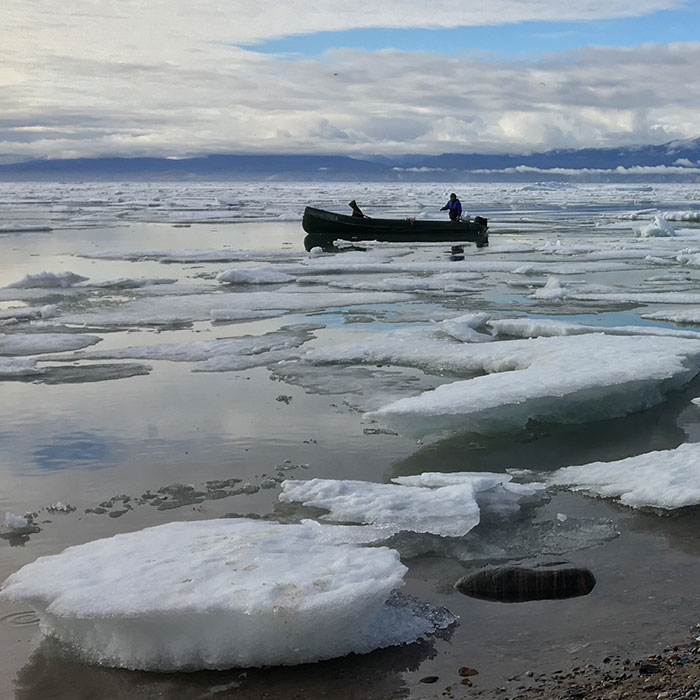Partnerships for Environmental Public Health (PEPH)

Food Security, Nutrition, and Indigenous Health in the Arctic
November 14, 2022
Interviewee: Sappho Gilbert, M.P.H
In this episode, Sappho Gilbert, a doctoral candidate at Yale University School of Public Health, discusses her NIEHS-funded project to better understand how climate change and other environmental factors are altering food security and nutrition among Inuit communities in the Canadian Arctic.
Food Security, Nutrition, and Indigenous Health in the Arctic
The Inuit peoples in the Arctic rely on traditional foods, such as caribou and arctic char, for sustenance. However, harvesting traditional foods has become more difficult as climate change makes trail systems dangerous to traverse. This is causing many Inuit to consume more store-bought foods, which are less nutrient dense than traditional foods. This nutrition transition may drive an increase in diet-related health outcomes, like obesity and type 2 diabetes, among Inuit populations.
In this episode, Sappho Gilbert, a doctoral candidate at Yale University School of Public Health, discusses her NIEHS-funded project to better understand how climate change and other environmental factors are altering food security and nutrition among Inuit communities in the Canadian Arctic. She also talks about the loss of traditional knowledge and culture that can occur with this dietary shift.
Interviewee:

Sappho Gilbert is a pre-doctoral fellow at the Yale Center on Climate Change and Health and doctoral candidate in the Department of Chronic Disease Epidemiology at the Yale School of Public Health. Her research interests include mental wellness, community health, food security, nutrition, and climate change in the Arctic. Through this work, Gilbert aims to broadly address humanitarian health, human rights, indigenous rights, and ethics. Gilbert earned her master’s in public health from Dartmouth College and graduated from the Massachusetts Institute of Technology with a Bachelor of Science in biology with a minor in political science.
Resources:
- Learn about NIEHS-funded research related to Native American health and the environment.
- Visit the Tribal Health Research Office website to learn more about Tribal health research and activities happening across the National Institutes of Health.
- Read about Gilbert’s research experiences in Nunavut:
- “Community” in Global Health Research: My Eye-opening Journey from the Wet Lab to the Canadian Arctic (June 2021 NIEHS Global Environmental Health Newsletter).
- Snapshots From a Recent Research Trip to the Canadian Arctic (August 2022 Yale Sustainable Food Program).
References:
Gilbert, SZ, Walsh, DE, Levy, SN, Maksagak B, Milton, MI, Ford, JD, Hawley, NL, Dubrow, R. 2021. Determinants, effects, and coping strategies for low-yield periods of harvest: a qualitative study in two communities in Nunavut, Canada. Food Sec. 13, 157–179. [Abstract Gilbert, SZ, Walsh, DE, Levy, SN, Maksagak B, Milton, MI, Ford, JD, Hawley, NL, Dubrow, R. 2021. Determinants, effects, and coping strategies for low-yield periods of harvest: a qualitative study in two communities in Nunavut, Canada. Food Sec. 13, 157–179.]


